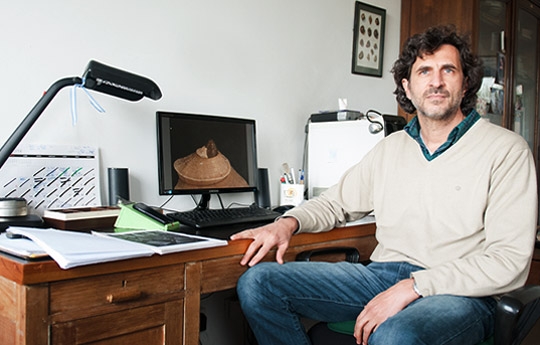The scientist’s voice
‘A good description will be eternal; a bad one, ephemeral’
Contrary to popular belief, naming a new marine species could be a great challenge for biologists
By Guido Pastorino *
The study of molluscs has a long tradition in Argentina. Perhaps, the starting point was provided by Alcide d’Orbigny, renowned French researcher, when he dedicated a species to the curator of what subsequently became the ‘Bernardino Rivadavia’ Museum of Natural Sciences. Nowadays, it is our workplace and home of the most important collection of Argentine molluscs.
All organisms are universally named according to the binomial system of Linnaeus. The molluscs are not the exception, because in order to conduct any type of research, we should refer to them in a unique way, through its Latin name.
In order to give a species a proper scientific name, in-depth knowledge is required, including studies of anatomy, histology, ecology and ethology, among others. All these are necessary either for accurate identification or for naming those that have not been described.
So, an interesting phase of the job begins: to describe new species. The hardest part is to cover all possible aspects so as to be absolutely sure about its identity. In our daily work, we call “a good species” to that one whose description is accurate and leaving no room for other possibilities.
This task involves responsibility and ethics. We have to exhaust all possibilities and be sure about it. In spite of knowing that we are dealing with new species, there are many circumstances in which this work is postponed due to the lack of a complete specimen or when there are more than one. A good description will be eternal; a bad one, ephemeral.
With the use of the “Puerto Deseado” Oceanographic Vessel of CONICET, we could reach less explored places. For three years, we have been working with specimens that live at depths of more than 100 metres and up to 3.500, from the commercial fishing area till the continental margin.
For those of us who grew up watching ‘The Undersea World of Jacques Cousteau’, to have the possibility of using a vessel of this type is heaven. As many researchers of my generation, our love for the sea began at that time, in front of the TV.
Molluscs in general and gastropods particularly do not present a numerically significant biodiversity in Argentine Waters. In fact, it is one of the lowest worldwide. This situation does not diminish the importance of the study. On the contrary, to find an answer to this reality is a great challenge.
Guido Pastorino holds a degree in Biology (oriented to Ecology) granted by the Facultad de Ciencias Naturales y Museo of the National University of La Plata (Universidad Nacional de La Plata). Furthermore, he conducted his posdoctoral research at the Smithsonian Institution, National Museum of Natural History, USA. Currently, he works at the “Bernardino Rivadavia” Argentine Museum of Natural Sciences where he leads several projects about marine molluscs’ biodiversity.
